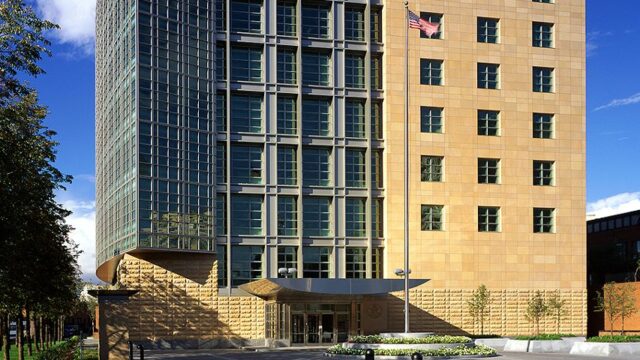
U.S. Embassy Moscow, Russia
Russia recognized the United States on October 28, 1803, and diplomatic relations between the United States and Russia were formally established in 1809. Diplomatic relations were interrupted following the 1917 Bolshevik Revolution. On December 6, 1917, President Woodrow Wilson instructed all American diplomatic representatives in Russia to refrain from any direct communication with representatives of the Bolshevik Government. Although diplomatic relations were never formally severed, the United States refused to recognize or have any formal relations with the Bolshevik/Soviet governments until 1933. Normal diplomatic relations were resumed on November 16, 1933. On December 25, 1991, the United States recognized the Russian Federation as the successor to the Soviet Union and established diplomatic relations on December 31, 1991.
In response to Russia’s ongoing violations of Ukraine’s sovereignty and territorial integrity, including Russia’s occupation and attempted annexation of Crimea, the United States suspended bilateral engagement with the Russian government on most economic issues. The United States continues to investigate allegations of mistreatment of or discrimination against U.S. investors in Russia and to urge Russia to improve its investment climate, adherence to the rule of law, and transparency. In Russia, the U.S. Embassy Political-Economic Section, on behalf of the U.S. Commercial Service, continues to assist U.S. firms interested in developing market opportunities that do not violate sanctions.
Today, the U.S. embassy is in Moscow. There are also U.S. Consulate Generals in Vladivostok and Yekaterinburg.
Map Link:
Source:
United States Department of State, Office of the Historian and Bureau of European and Eurasian Affairs
Social Links:
https://www.facebook.com/russia.usembassy